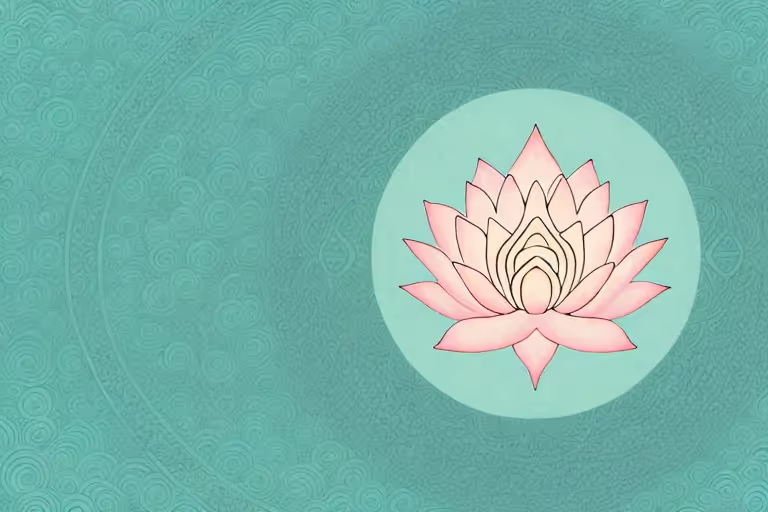In a world overflowing with stress and negativity, there exist profound practices that can bring about balance and peace. One such practice is the Ho'oponopono, a Hawaiian meditation technique aimed at achieving clarity, healing, and reconciliation within oneself. With its transformative power, it becomes easier to navigate through life’s hurdles, maintaining positivity and equanimity.
Understanding the Basics of Ho'oponopono Meditation
The Origin and History of Ho'oponopono
The roots of Ho'oponopono trace back to ancient Polynesian cultures. Originally used as a reconciliation ceremony, its purpose was to rectify errors or conflicts within the community, thereby restoring balance and harmony.
This sacred practice was deeply embedded in the Polynesian way of life, serving as a means to resolve disputes and maintain strong bonds within the community. The elders would gather the individuals involved in a conflict and guide them through a process of open communication, deep reflection, and forgiveness. Through this ceremony, the community would heal and move forward together, leaving behind any lingering resentment or negative energy.
Over time, the practice of Ho'oponopono evolved and adapted to different cultures and contexts. Pivotal to its introduction in the Western world was Morrnah Nalamaku Simeona. She recognized the potential of Ho'oponopono as a transformative tool for personal growth and healing and modified the traditional practice into a simple meditation that could be performed by individuals.
Simeona's adaptation gained popularity due to its profound effect on psychological healing and personal development. The essence of Ho'oponopono remained intact, even as it became accessible to a wider audience.
Aura has the world’s largest and best collection of Meditations and hundreds of Coaches to choose from.
Try it Free!
The Core Principles of Ho'oponopono Meditation
The essence of Ho'oponopono lies in its four key principles: repentance, forgiveness, gratitude, and love. These principles serve as the foundation for the practice, guiding individuals towards inner healing and self-transformation.
Repentance is the acknowledgment and acceptance of responsibility for one's actions, thoughts, and emotions. It is about recognizing the impact of our choices and taking ownership of them. By embracing repentance, individuals open themselves up to the possibility of change and growth.
Forgiveness plays a crucial role in Ho'oponopono. It is not only about forgiving others but also about forgiving oneself. Through forgiveness, individuals release the burden of resentment and free themselves from the chains of the past. It is a powerful act of self-liberation and an invitation to embrace compassion and understanding.
Gratitude is a transformative force in Ho'oponopono. It encourages individuals to cultivate a deep sense of appreciation for all aspects of life, both positive and negative. By expressing gratitude, individuals shift their perspective and invite abundance and positivity into their lives.
Love is the ultimate guiding principle of Ho'oponopono. It is about cultivating love for oneself, for others, and for the world. Love is the healing balm that nurtures and transforms, allowing individuals to connect with their true essence and experience profound inner peace.
This form of meditation isn't just about repeating these principles but truly understanding and internalizing them. It requires a deep commitment to self-reflection, self-awareness, and personal growth. By accepting and transforming the negative aspects of oneself, Ho'oponopono can lead to freedom from painful past experiences and offer a pathway to self-love and contentment.
The Four-Step Process of Ho'oponopono
Ho'oponopono is a powerful spiritual practice that offers a transformative approach to healing and reconciliation. It is rooted in the ancient wisdom of the Hawaiian culture and encompasses four essential steps that can bring about profound positive change in our lives.
Step One: Repentance
Similar to many spiritual practices, Ho'oponopono starts with the premise of acknowledging one's errors or negative actions. It goes beyond mere guilt and delves into the deeper realm of self-reflection and self-awareness. True repentance involves recognizing the impacts of our actions on ourselves and others, and taking responsibility for them.
In this first step, we are encouraged to honestly examine our thoughts, words, and deeds, and to confront any negative patterns or behaviors that may be causing harm. By acknowledging these mistakes and their consequences, we open the door to healing and transformation.
Step Two: Forgiveness
The second step in Ho'oponopono is the act of asking for forgiveness. It is a universal act of humility, a surrender to the fact that everyone makes mistakes and that the ability to forgive oneself is crucial in letting go of self-judgment and resentment.
In this step, we recognize that forgiveness is not only directed towards others but also towards ourselves. By extending forgiveness to ourselves, we release the burden of guilt and create space for self-love and self-acceptance. This act of forgiveness paves the way for healing and reconciliation, both internally and externally.
Step Three: Gratitude
Gratitude is the next step in the Ho'oponopono process. It involves acknowledging and appreciating the good in life, even amidst challenges and difficulties. It's about recognizing the existence of goodness, even in the face of adversity, as there is often a valuable lesson hidden within.
Expressing gratitude forms the framework for positive perception, shifting our focus from what is lacking to what is abundant. It cultivates a mindset of abundance, where we become aware of the blessings and opportunities that surround us. By practicing gratitude, we elevate our sense of well-being and invite more positivity into our lives.
Step Four: Love
The final step in Ho'oponopono is the expression of love. It complements the earlier steps and encapsulates them, fostering a sense of compassion and acceptance. Love, as a universal positive emotion, has the power to heal and transform.
In this step, we cultivate a deep sense of love for ourselves, for others, and for the world around us. We recognize that love is the ultimate force that can dissolve all barriers and bring about profound healing. By embracing love, we open ourselves to the infinite possibilities of growth, connection, and harmony.
As we embark on the journey of Ho'oponopono, we are reminded of the interconnectedness of all beings and the power we hold within ourselves to create positive change. Through the four steps of repentance, forgiveness, gratitude, and love, we can embark on a path of deep emotional healing and transformation.
The Benefits of Practicing Ho'oponopono Meditation
Ho'oponopono is a powerful meditation practice that offers numerous benefits for emotional healing, stress reduction, and self-love. By encouraging individuals to confront and release negative emotions, this ancient Hawaiian practice brings about a sense of balance and inner peace.
Emotional Healing and Balance
Ho'oponopono provides a safe and supportive space for individuals to address and work through their emotional wounds. Whether it's grief, anger, or resentment, this practice allows one to delve deep into these emotions and find healing. By acknowledging and accepting these feelings, individuals can release them and experience a newfound sense of emotional balance.
During the Ho'oponopono meditation, participants are guided to reflect on their emotions, offering compassion and forgiveness to themselves and others. This process helps to dissolve emotional blockages and create space for healing and growth.
Stress Reduction and Relaxation
Stress has become an increasingly common aspect of modern life, affecting our physical and mental well-being. Ho'oponopono offers a powerful antidote to stress by promoting relaxation and mental clarity.
Through the practice of repentance, forgiveness, gratitude, and love, individuals can release the tension and anxiety that often accompany stressful situations. By immersing themselves in this meditative process, participants can find solace and peace amidst the chaos of daily life.
Ho'oponopono teaches individuals to let go of control and surrender to the present moment, allowing them to experience a profound sense of calm and tranquility.
Enhancing Self-Love and Forgiveness
At the core of Ho'oponopono is the promotion of self-love and forgiveness. This practice encourages individuals to acknowledge their shortcomings and mistakes without judgment, fostering a deep sense of self-acceptance and compassion.
By recognizing that we are all imperfect beings, Ho'oponopono teaches us to embrace ourselves fully, flaws and all. This self-love leads to increased resilience, self-confidence, and psychological liberation.
Through the practice of self-forgiveness, individuals can let go of guilt and shame, freeing themselves from the burden of past mistakes. This process allows for personal growth and transformation, paving the way for a more fulfilling and authentic life.
In conclusion, Ho'oponopono meditation offers a wealth of benefits for emotional healing, stress reduction, and self-love. By engaging in this practice, individuals can find inner peace, balance, and a deeper connection with themselves and others.
How to Incorporate Ho'oponopono into Your Daily Routine
Ho'oponopono is a powerful Hawaiian practice that can bring about emotional healing, personal growth, and a deep sense of self-awareness. By incorporating this ancient wisdom into your daily routine, you can experience transformative effects and cultivate a more tranquil and fulfilled life. In this guide, we will explore practical tips and suggestions to help you integrate Ho'oponopono into your everyday life.
Setting Up Your Meditation Space
Creating a dedicated space for your Ho'oponopono practice is essential. Whether it's a corner in your home or a serene spot in nature, choose a place where you can feel calm and undisturbed. Consider adding elements that resonate with you, such as candles, crystals, or meaningful objects. These can help create a sacred atmosphere that supports your meditation practice.
Take a few moments to reflect on the qualities you want to cultivate during your practice. Is it peace, love, forgiveness, or gratitude? Infuse your meditation space with these intentions, allowing them to guide and nourish your practice.
Choosing the Right Time for Meditation
Consistency is key when it comes to incorporating Ho'oponopono into your daily routine. Choose a time that works best for you, whether it's early in the morning or before bed. The important thing is to establish a regular meditation practice that fits seamlessly into your schedule.
Consider the energy of different times of the day. Mornings are often peaceful and quiet, providing an ideal environment for introspection and setting intentions for the day ahead. Alternatively, evenings can be a time for reflection and releasing any accumulated stress or tension from the day.
Practical Tips for Consistent Practice
Begin your Ho'oponopono practice with a few moments of silence. Close your eyes, take a deep breath, and allow yourself to settle into the present moment. This gentle transition helps shift your focus inward and prepares you for the four-step process of Ho'oponopono.
The four-step process involves repeating four powerful phrases: "I'm sorry, please forgive me, thank you, I love you." As you recite these words, allow yourself to truly feel their meaning and intention. Visualize the person or situation you wish to heal or release, and let go of any negative emotions or attachments associated with it.
With regular practice, Ho'oponopono will become a natural part of your daily routine. Start with shorter sessions and gradually increase the duration as you become more comfortable. Remember, it's not about perfection or achieving a specific outcome. The intention is to cultivate a loving and forgiving mindset, which will positively impact all areas of your life.
Incorporating Ho'oponopono principles into your life offers you a fresh perspective, emotional healing, and a liberated sense of self. For consistent and guided practice, consider exploring tools like the Aura Health app. It offers a variety of meditative practices and tools for personal development, providing a holistic approach to wellness. Harness the power of modern technologies to journey toward a more tranquil and fulfilled life.
Remember, the key to incorporating Ho'oponopono into your daily routine is consistency, intention, and an open heart. As you embark on this transformative journey, trust in the process and allow the healing power of Ho'oponopono to unfold in your life.
Aura is Your All In One App for Meditation, Mindfulness Wellbeing
Find peace every day with one app for your whole well-being. There is no one-size-fits-all solution to mental well-being. Aura is the first all-in-one wellness app that learns how to best help you. Discover an endless library of expert-created tracks for your well-being, all taught by the world’s best coaches, therapists, and storytellers. With Aura's personalized recommendations, you can find peace every morning, day and night.



.webp)






.avif)

%20(1).avif)


.avif)
.avif)
.webp)


.avif)


















































































































.avif)

















.svg)









